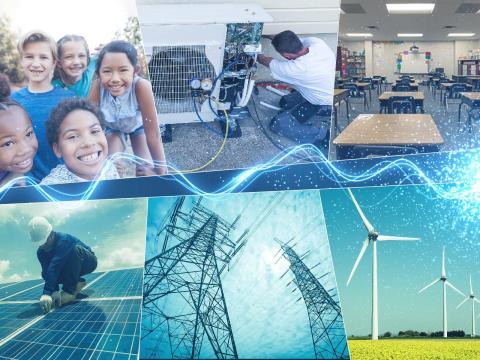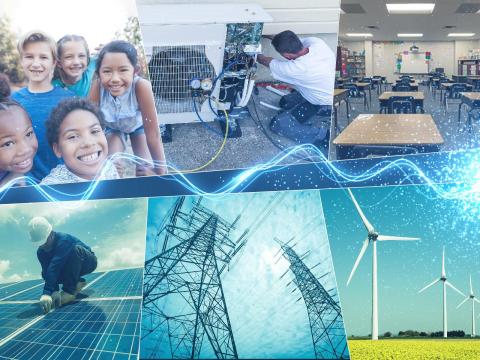Energy insecurity affects most low-income households in the United States. Energy insecurity, which is characterized by a household’s inability to afford their energy needs, often leads to risky choices, causing other forms of insecurity including food and health. Although there are government...
Filter results
Category
- (-) Solar Energy (3)
- Scientific Discovery (369)
- Biology (258)
- Earth System Science (161)
- Human Health (112)
- Integrative Omics (73)
- Microbiome Science (47)
- National Security (31)
- Computational Research (25)
- Computing & Analytics (17)
- Chemical & Biological Signatures Science (12)
- Energy Resiliency (12)
- Weapons of Mass Effect (12)
- Chemistry (10)
- Data Analytics & Machine Learning (9)
- Computational Mathematics & Statistics (7)
- Materials Science (7)
- Atmospheric Science (6)
- Data Analytics & Machine Learning (6)
- Renewable Energy (6)
- Visual Analytics (6)
- Coastal Science (4)
- Ecosystem Science (4)
- Energy Storage (3)
- Plant Science (3)
- Bioenergy Technologies (2)
- Cybersecurity (2)
- Distribution (2)
- Electric Grid Modernization (2)
- Energy Efficiency (2)
- Grid Cybersecurity (2)
- Transportation (2)
- Computational Mathematics & Statistics (1)
- Grid Analytics (1)
- High-Performance Computing (1)
- Subsurface Science (1)
- Terrestrial Aquatics (1)
- Wind Energy (1)
Content type
Showing 1 - 3 of 3
Federal and state decarbonization goals have led to numerous financial incentives and policies designed to increase access and adoption of renewable energy systems. In combination with the declining cost of both solar photovoltaic and battery energy storage systems and rising electric utility rates...
Category
Project
PNNL’s Vision Statement for Equity in the Power Grid Drawing from a wealth of interdisciplinary research in grid modernization, PNNL is spearheading an effort to advance equity and energy justice through the role of scientific research with the goal of building an advanced national power grid...
Datasets
2


